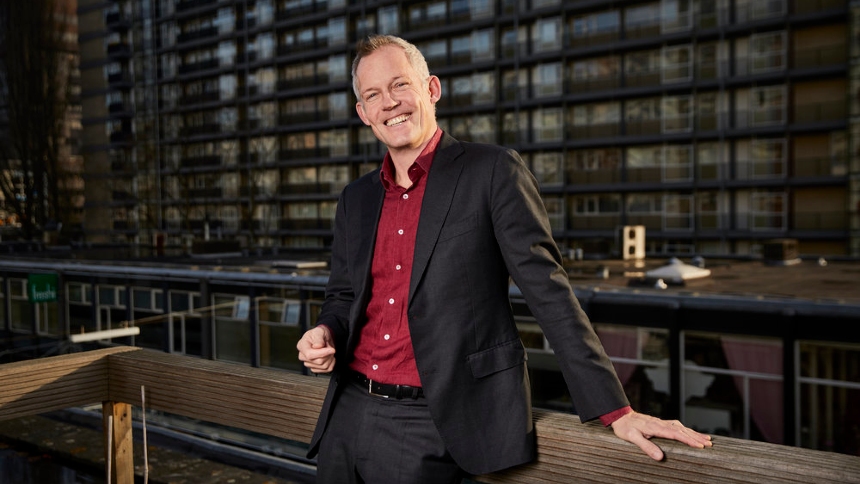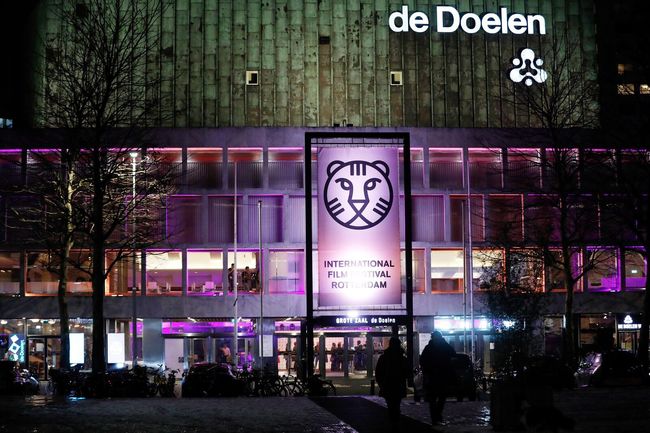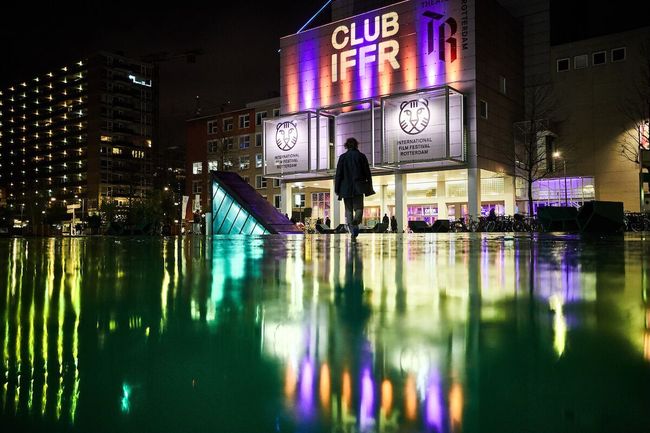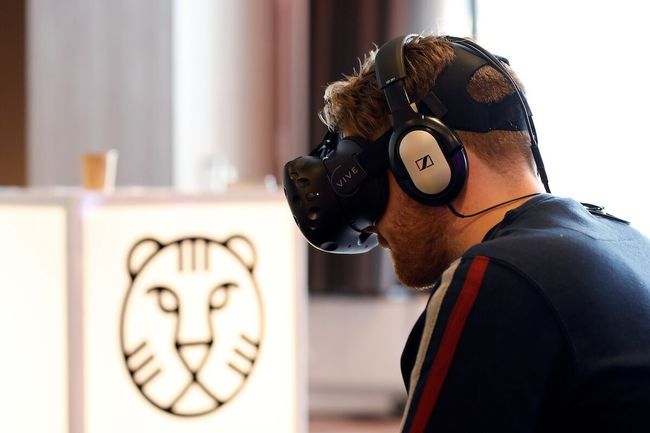Rotterdam 2020 Interview: Fest Director Bero Beyer Talks Indie Cinema in the Age of Streamers

On the eve of the 49th edition of the International Film Festival Rotterdam (IFFR), ScreenAnarchy caught-up with the festival's artistic director, Bero Beyer, who is wrapping his tenure leading the festival this year
. Besides the novelties arriving with this edition, since a film festival is a living organism constantly shifting, the subject of the discussion veered to the state of current independent cinema that the IFFR has been championing for almost a half century, and its position in the era of monolithic culture and streaming wars.
ScreenAnarchy: What do you have in store for the 2020 edition of International Film Festival Rotterdam and what are the novelties?
Bero Beyer: I am very happy with our lineup. From the opening film Mosquito to the closing film A Beautiful Day in the Neighborhood, and everything in between: the Crash live film concert, all the retrospectives, the art installations, the competitions... all of it. There are a couple of changes compared to the previous edition that are quite visible.
First of all, we decided to change the setup of the Bright Future Competition. Previously, debut feature films that were international or world premiere were automatically eligible for a Bright Future Award, but this method resulted in too many films for a jury to see.
So we turned it into a curated competition of films that are outspoken and daring. We put together a very nice collection of fifteen competition titles. This change also impacts the Tiger Competition, which is also situated in Bright Future but it is also the main competition of the entire festival.
For the first year, the Tiger Competition will feature ten films instead of eight. I just couldn't say no: the films were too good, they fitted together, the lineup was comprehensible. It is a selection that I believe is highly relevant in terms of new films this year.
I always like to incorporate a theme running throughout the entire festival. This year it's the power of collectives and how collectivity is an alternative to visions of single auteurs.
Our theme programme Synergetic is devoted to the way collectives work artistically and how they often radiate a strong sense of survival, identity and politics, like the Karrabing Collective from Australia or the African collectives that we started working with last year. We asked them "how about you guys make some shorts to show at IFFR?" and boom, they made features films.
We also have a theme programme connected to what is currently happening in Hong Kong, including films that have footage shot just a couple of weeks ago as clashes and demonstrations came to a peak. We are devoting this programme to the filmmakers from this so-called apolitical state - which has proven to be quite the opposite.
The topic of collectivity relates to the whole process of filmmaking. This is one of the reasons why we have created the Robby Müller Award, together with Andrea Müller-Schirmer, Robby's wife, and the Netherlands Society of Cinematographers. Robby was arguably the Netherlands' most influential cameraman.
The award will be given to a director of photography, filmmaker or visual artist that exemplifies Robby's stance that we feel very much attached to: no showboating, no glamour stuff, but the essence of cinema through emotion and image. The inaugural award will be bestowed to cinematographer Diego García, who worked with among others Carlos Reygadas, Yorgos Lanthimos or Gabriel Mascaro.
I am also very happy with the retrospectives this year, The Punk and the Poet. We wanted to screen a documentary by Beth B on Lydia Lunch, The War is Never Over. Then we told her that we wanted to do a retrospective about her works, and Beth B said "This is so cool, can I help?" - of course, please do so. She came up with a bunch of films not just from her own oeuvre but also works that inspired her.
We have films that some people may have forgotten about, but that have this delightful, punky 'fuck-you attitude'. Besides this, we are also doing a retrospective on another poet: the utterly human producer, director and actress Marion Hänsel from Belgium. We screened many of her films in the past. Spoiler alert, I have even collaborated with her when she co-produced one of my films years ago, Atlantic. We felt that she is one of those distinct voices that deserves more attention and she made a new film on the essence of life, Il était un petit navire.
What I am also thrilled about, in terms of political relevance, is the opening film, Mosquito by João Nuno Pinto. If you look back at the last five years, we alternated back and forth with an opening film film from the Netherlands with international aspirations, like Dirty God last year, and other international films like Jimmie.
Part of the beauty of Mosquito, a Portuguese film set in Mozambique in 1917, is that it questions and reflects on how we relate to the past. There are parts of history that we don't talk about enough, that we forget, that we do not really have on top of our minds. So here is a story of a 17-year-old kid who wants to fight gloriously in WWI but winds up in Africa, one of the places of the battle that does not get much attention.
The Portuguese fighting the Germans in Mozambique, with the English trying to help out the Portuguese but actually aspiring to increase their colonial empire. And in the middle of all this is a young man, who finds himself lost and has interactions with the very Mozambique people is he supposed to rule over as a colonizer.
The film has these beautiful echoes, let's say parallels, with the way that the Netherlands deals with its colonial past. There is a lot of talking about our canon of culture and history. If we stop talking about this, it means we are neglecting where we come from and why we are who we are.
I hope Mosquito is a trigger for this type of discussion, a great epic beautifully-shot Hearts of Darkness-like search and personal story. The main character was modeled after the director's grandfather who actually went through similar experiences in Mozambique.
What is the state of cinema in 2020, the age of instant streaming, from the point of view of the IFFR?
Well, let's say there are two huge developments in the industry that impact cinema today. One of those developments is very positive while the other one I am not so sure about. The positive development would be that all those discussions we had about polarization, gender inequality, #Oscarssowhite, diversity and inclusivity and a broader vision of representation on the screen and behind the camera, have made this a golden moment.
Finally, the things that were the core of what IFFR stood for as a festival - an open platform to show an alternative to dominant mainstream cinema - are now out in the open, even though it's because of all those horrible scandals and elements that are by themselves sometimes quite criminal.
There's no way back. The floodgates are open and I think we will look back in a couple of years and realize just how special this time was. It has given way to a much broader appreciation of cinema. Yes, we want to see those other stories, we need to see those other stories, that's who we are, whoever we are, wherever we come from. This is the good side of things.
The development I am not sure about yet is this transformation of the way films are financed. It used to be step by step: from production to distribution, to sales, to reaching audiences. That way of doing things is obviously tense now.
Everybody already knew the streaming services would make a difference sooner or later. Independent cinema is still in catch-up mode and is now realizing that in many ways it's a rigged game.
There is too much capital in certain forces, meaning they can dominate too many screens. And the moment you have all the choices in the world on your phone, your home cinema system, your laptop or your cinema, curation in particular becomes all the more important.
When this much money is involved, it is easy to push others out of the way. So finding the balance between what is going on with independent cinema on one side and the market forces on the other is an ongoing challenge.
It could turn out to be a mutually beneficial cooperative - almost collective - working relationship, but it is doubtful whether these developments won't be tilted easily by the weight of the mighty dollar.
The conference Reality Check running alongside IFFR will address the risks of monolithic culture and the need to ensure plurality of voices.
Yes, and this ties in with the concept of originality, our theme this year. You could say that originality as used often by some of streamers is a bit of an anomaly. What constitutes true originality? Let's figure this out from a positive angle and from the angle of the independent cinema world.
Last year, we were discussing how various formats often put original ideas into little boxes too quickly, rather than thinking outside of it, and now, we are trying to follow up how that is related to originality. How different representations on screen translate into the development of originality as seen on festivals and hopefully on other platforms and cinema's as well. So yes, we will be talking about what the filmmaking community can do in this regard and which opportunities await for the future.
And the festival has also its own streaming platform, IFFR Unleashed.
Here is the thing: we, as a festival, are not opposed in any way, shape or form to the concept of streaming or availability, quite the contrary. Our function as a film festival is to be open to as many audiences as possible, whether that is in a cinema, on a streaming service or on a television set.
People should see the films. Obviously is nicer in the cinema but availability is a good thing, so I am very much in favor of streaming services as an idea.
Last year you hinted big change regarding IFFR´s streaming platform. How did you decide to transform the VoD?
We had started the service as a separate entity but we decided it should be integrated within the festival from now on. We have incorporated it into the heart of the festival itself, it is essential on our own website and is fully integrated now.
It should be in collaboration with and in the same vein as the festival itself so that it gives us the opportunity to connect to the same audiences, films and filmmakers in a festival context and feel. This is, I think, both a nice and a realistic move, because it is integrated in what you know to be your first forum for independent curation, being IFFR.
Two years ago, the festival revived its genre section Rotterdämmerung, and it was not a one-night-stand as it has still its own place in the line-up. What is the position of genre filmmaking in the current landscape of world cinema from your position?
It is a good question because we started with it almost like a guilty pleasure. We said let's have this section because cinema should also be fun, but it turned out to be a proper line-up in the programme at our festival. There is always discussion between what films should be in Rotterdämmerung or in another programme. More and more filmmakers are using whatever means they can, whether it is genre, different formats, lengths, et cetera.
The nice thing is - and this is may be a trend - that more directors use genre because it works to set certain conventions. People knows what they are going to see as a genre, which gives all the more space for the stuff you really care about whether it is form, visuality or content-wise as, let's say, social critique.
So in Rotterdämmerung as well as throughout the festival there are these films that make you say: hey, hold on, this is a genre film and yet it's totally IFFR. Whatever the genre may be. It does not mean that genre means horror or slasher automatically, it could be western. Last year, we had a film called Romantic Comedy.
I think the best films are aware of how to engage with the audience in such a way that the filmmaker can use whatever is there. And if it is genre, they use genre.
IFFR reflects moving image from a wide angle, which includes visual arts. What did you prepare for this year's Art Directions?
We are continuing Art Directions. And I hope we will for a long time, since it's quite a production feat to incorporate visual artists in the programme. We are take a very wide approach to the moving image, whether it's genre film or visual arts with a capital A.
The Quay Brothers are coming with an installation that incorporates the universe they created for their next feature film. It's a huge production. Two other things are worth mentioning here. In May, we put out an open call for a programme called Young Curators.
The idea is: we don't know what we don't know. So we asked young curators how are just starting out to submit an idea for a theme programme. And I am very happy with the result for this first year: a theme programme called Sacred Beings, where gender-fluidity in South-East Asia is discussed by investigating how non-binary people have been regarded in pre- and post-colonial times.
But we felt there is more to be done with the next generation of curators, visual artists and how they shape their thinking of cinema. In the vast ocean of cinematic productions, the element of curation is hugely important and will only become more important. That's why we are doing a multi-day programme called Sessions where a selected group of younger curators and visual artists are engaging in courses and discussions with visual artists and some of the festival guests.
And I have a premonition, that in a couple of years, these are the people that will be running the festivals so it is only relevant to figure out how they regard the future of cinema and how they regard to go about curation and presentation in our cinematic landscape.
Thank you very much. We are looking forward to the 49th edition of International Film Festival Rotterdam.
One of the things I believe to be very relevant, relating to collectivity and collective responsibility even, is the initiative we are developing with IDFA and the European Film Academy to come up with an independent structure of an international coalition for filmmakers at risk. You may remember that there has been an outcry when everybody wanted to raise attention for Oleg Sentsov's case.
There are plenty more cases where filmmakers are actually at physical risk and we are working on creating an organization that can help with adequate responses to that, so we can use the bullhorns of our festivals to make a dent and to act in solidarity with the filmmakers when there is no freedom, when there is no safety.
It is one of those things which may have nothing to do with showing films at a festival per se, but we have a shared responsibility as we are hoping that films will still be made in the future. It's why we have IFFR Pro and the Hubert Bals Fund to begin with.
There is no security given for anyone, but we need to stick together and make sure that filmmakers can continue to make films so we can show them and engage with them.
We wish you many successes in your new role as the director of the Netherlands Film Fund.
The 49th edition of the International Film Festival Rotterdam runs from January 22 until February 2 2020











